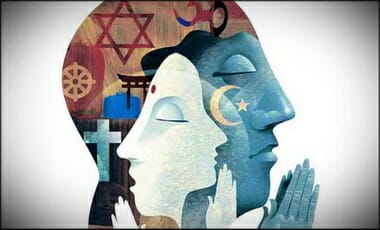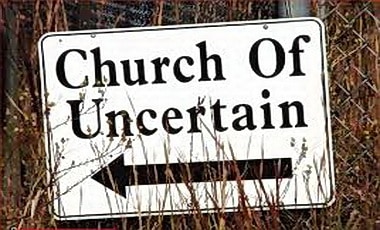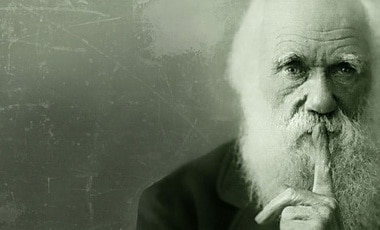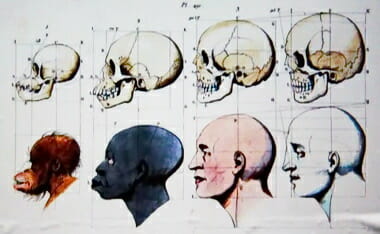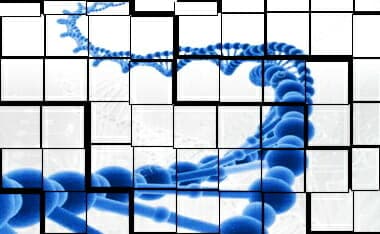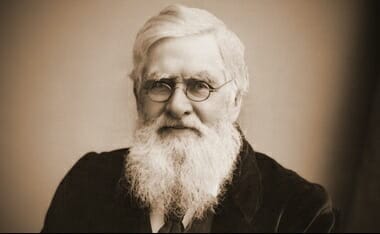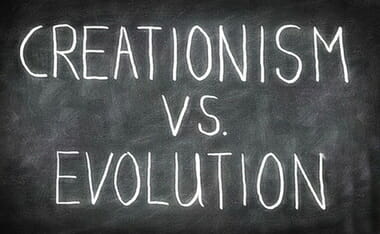I dug this gem out of my Microsoft Word due to a conversation on my Facebook. I was planning on going a different direction but after I found this from about 1999 via a debate in a forum on what is still SPACE BATTLES… it was late 99 or early 2000 that I cut my teeth on the Internet via Space Battles. I kept most of my debates from the 4 or so years I was on the forums there… at least my responses. This is one of those early debates — the main point here is that secularism is a religion. (I may add some media when I see fit):
SKEPTIC, YOU SAID:
- I don’t know how you can say Jimmy Jones and the Branch Davidians weren’t believers in absolutism and God.
This is easy to say. Both rejected the God of the Bible, period. They were not Christians, period. They were cults who had sex with multiple partners and were power hungry and changed meanings of plain and clear scripture to get their way. This is important, because when anyone deals with a cult member, they need to realize that there is a language barrier. For instance, when a Mormon says he or she believes in Jesus, is this the same Jesus Christianity has preached for 2,000 years? How a bout the Jehovah’s Witness when they say they believe in Jesus?
JESUS
Mormons believe that Jesus is not God, but a god, they are polytheists. They believe that Jesus was born first in heaven in a spiritual body via sexual relations between “Heavenly Father” (God in Mormon terms) and one of his many wives. Lucifer also was a son born by “God” sticking his dingy in one of his wives. By the way, God was once a man like us, and now resides on the planet Kolob (according to the Pearle of Great Price – one of many added Mormon scripture). And be sure that all mentioned here have to take away, change, or add scripture to get their theology to work – just like Hitler and his cronies.
(SEE ALSO: “MORMON GLOSSARY: WORDS HAVE MEANING“)
Jehovah’s Witness’s believe that Jesus was the first created being, that is, Michael the Archangel. Jehovah (God) then created all things THROUGH Michael the Archangel. When Michael came to earth in bodily form he was known as Jesus. And now is not Jesus any longer, but once again under the name and title Michael the Archangel, the first-born.
Jesus, according to the historic Christian faith is God, the creator of everything in heaven and on earth. He is not bound by time-space; for unlike the two before mentioned perversions of plain scripture, Jesus is the Creator of the space-time continuum. He is God Almighty.
SALVATION
Both Jehovah’s Witness’ and Mormons believe that the sacrifices given on the cross by “Jesus” was only in remission of Adam’s original sin, opening the way for these sincere persons to “work” their way into heaven or “salvation.” Jehovah’s Witness’s believe that 100 hundred hours a week of going door-to-door or standing in front of donut shops handing out booklets will one of the many rules sufficient enough to allow them to be resurrected here on earth to live forever more (only 144,000 get to go to heaven). Mormons don’t drink caffeine, cuss, marry in the temple, wear special undergarments, tithe, all in the hopes of making to the “best” heaven.
Christianity teaches that we can do nothing to please God, all our good works are like leaves in the wind, they blow away. Salvation is a gift that only can be fulfilled by an immutable, perfect, gift… man can never attain this in his finite state. Salvation is through Christ alone. This is one of the many proofs that Christianity is divine, that is, if this were a man-made religion, man would have made it conquerable. So like Mormonism and Jehovah’s Witness’ religious construct of lists of items to do for salvation to be attainable, Christianity has no such list. If man had made Christianity, there would be something we could do to please God for our salvation, in fact, we cannot. Christianity is unconquerable by man. (sorry, back to the point).
So when a Jehovah’s Witness or Mormon come to your door and say, “we believe in Jesus,” or, “we believe in salvation,” and, “we are followers of Christ, therefore we are the true Christians,” you can break through the fog by understanding what is meant by terms used.
(From a debate with a J-Dub):
The main problem is that the Watchtower gives ALL truth that is to be believed by the Jehovah’s Witness. I will show an example, and I quote the founder, Charles Taze Russell:
If the six volumes of SCRIPTURE STUDIES are practically the Bible, topically arranged with Bible proof texts given, we might not improperly name the volumes THE BIBLE IN AN ARRANGED FORM. That is to say, they are not mere comments on the Bible, but they are practically the Bible itself….
Furthermore, not only do we find that people cannot see the divine plan in studying the Bible by itself, but we see, also, that if anyone lays the SCRIPTURE STUDIES aside, even after he has used them, after he has become familiar with them, after he has read them for ten years – if he then lays them aside and ignores them and goes to the Bible alone, though he has understood the Bible for ten years, our experience shows that within two years he goes into darkness. on the other hand, if he had merely read the SCRIPTURE STUDIES with their references, and not read a page of the Bible, as such, he would be in the light at the end of two years, because he would have the light of the Scriptures.
Even if you’ve read the Scripture Studies for ten years, and you lay them aside and read the Bible for two years alone, you enter into darkness?!
This is a revealing quote.
It shows how brainwashed Jehovah’s Witnesses are to the fact that the ruling council and president of the Watchtower Society dispense nothing but truth and reality while the rest of humanity who points out the misquotes and misrepresentations are shunned as devils (almost literally).
I will go out on a limb here and say, “if the devil were to create a religious group that undermines the true message in the Bible, would the devil require someone to read the Bible by itself… or would the devil want to add something to it that would interpret everything within?”
Same goes for our current discussion.
When Hitler uses the words Christians, Jesus, church, and the like, you know he had changed the Biblical absolutes to fits his relativistic pantheism/paganism that we know he believed. If Hitler came to our door today passing out tracts talking of Jesus’ non-Jewish heritage and that he was going to finish what Jesus couldn’t, namely the extermination of the Jews, then we would know that this is not Christianity, not absolutes, but fascism at it most perverted. Remember what a philosophy major once said:
- “Everything I have said and done in these last years is relativism by intuition…. If relativism signifies contempt for fixed categories and men who claim to be bearers of an objective, immortal truth… then there is nothing more relativistic than fascistic attitudes and activity…. From the fact that all ideologies are of equal value, that all ideologies are mere fictions, the modern relativist infers that everybody has the right to create for himself his own ideology and to attempt to enforce it with all the energy of which he is capable” — Mussolini
Mussolini, Diuturna (1924) pp. 374-77, quoted in A Refutation of Moral Relativism: Interviews with an Absolutist (Ignatius Press; 1999), by Peter Kreeft, p. 18.
This is what Hitler did, Mussolini, Joseph Smith, Charles Taze Russell, Jim Jones, David Koresh, and all others who relativize God’s plainly stated truth to fit their particular needs or situation. And in doing so, they must change, reject, or add to the Bible or the historic Christian faith in order to do so.
SKEPTIC, WHEN YOU SAID:
- That I agree with! Claiming a personal revelation can hid a host of evils. But it seems like the religious are more likely to do that then a humanist…. I am also arguing that a humanist who believes he contains within himself the ultimate determination of what is moral, would not do the things that these people did without, at least, the recognition that he is being evil. These nazis, Branch Davidians, terrorists, and kool aid killers are all more dangerous because they believe they are doing good.
I almost fell out of my chair. The Communists killed many, many millions believing they were doing good? God revealing this is not mandated by Mao is it? Special revelation isn’t only from God. One needs only to read the Humanist Manifesto’s or the Communist Manifesto to see revelation without God. Huxley called evolution a religion without revelation. However, there can be revelation in non-belief. For instance, consider the following excerpt from a letter written by Charles Darwin in 1881:
“I could show fight on natural selection having done and doing more for the progress of civilization than you seem inclined to admit…. The more civilized so-called Caucasian races have beaten the Turkish hollow in the struggle for existence. Looking to the world at no very distant date, what an endless number of the lower races will have been eliminated by the higher civilized races throughout the world.”
Charles Darwin, Life and Letters, I, Letter to W. Graham, July 3, 1881, p. 316; cited in Darwin and the Darwinian Revolution, by Gertrude Himmelfarb (London: Chatto & Windus, 1959), p. 343.
Or:
“At some future period, not very distant as measured by centuries, the civilized races of man will almost certainly exterminate and replace the savage races throughout the world. At the same time the anthropomorphous apes … will no doubt be exterminated. The break between man and his nearest allies will then be wider, for it will intervene between man in a more civilized state, as we may hope, even than the Caucasian, and some ape as low as a baboon, instead of as now between the negro or Australian and the gorilla.”
Charles Darwin, The Descent of Man, 2nd ed. (New York: A. L. Burt Co., 1874), p.178.
How a bout this:
“No rational man, cognizant of the facts, believes that the average negro is the equal, still less the superior, of the white man. And if this be true, it is simply incredible that, when all his disabilities are removed, and our prognathous relative has a fair field and no favour, as well as no oppressor, he will be able to compete successfully with his bigger-brained and smaller-jawed rival, in a contest which is to be carried on by thoughts and not by bites. The highest places in the hierarchy of civilization will assuredly not be within the reach of our dusky cousins, though it is by no means necessary that they should be restricted to the lowest. But whatever the position of stable equilibrium into which the laws of social gravitation may bring the negro, all responsibility for the result will henceforward lie between Nature and him. The white man may wash his hands of it, and the Caucasian conscience be void of reproach for evermore. And this, if we look to the bottom of the matter, is the real justification for the abolition policy.”
Thomas Huxley, Lay Sermons, Addresses and Reviews (New York: Appleton, 1871), pp 20-1.
One more before I head to humanism:
“The stronger must dominate and not mate with the weaker, which would signify the sacrifice of its own higher nature. Only the born weakling can look upon this principle as cruel, and if he does so it is merely because he is of a feebler nature and narrower mind; for if such a law [natural selection] did not direct the process of evolution then the higher development of organic life would not be conceivable at all…. If Nature does not wish that weaker individuals should mate with the stronger, she wishes even less that a superior race should intermingle with an inferior one; because in such a case all her efforts, throughout hundreds of thousands of years, to establish an evolutionary higher stage of being, may thus be rendered futile.”
Adolf Hitler, Mein Kampf, translator/annotator, James Murphy (New York: Hurst and Blackett, 1942), pp. 161-162.
These seem very revelational, just revelations from nature.
John Dewey, signer of the Humanist Manifesto I, says this regarding education:
education is the fundamental method of social progress and reform…. In this way the teacher always is the prophet of the true God and the usherer in of the true kingdom of God.
John Dewey, Education Today, “My Pedagogic Creed,” (New York: G. P. Putnam’s Sons, 1897), p. 15, 17.
You see, John Dewey argues that “scientific” education has made the notion of the supernatural “incredible,” and anticipates “the coming of a fuller and deeper religion” – Humanism. Dewey viewed public education as the vehicle to promote this “deeper religions.”
We certainly cannot teach religion as an abstract essence. We have got to teach something as religion, and that means practically some religion…. It is their business to do what they can to prevent all public educational agencies from being employed in ways which inevitably impede the recognition of the spiritual import of science ands of democracy, and hence of that type of religion which will be the fine flower of the modern spirit’s achievement.
Ibid – 1940 edition.
My point as I continue on here is that men are made for revelation, if God’s is thrown to the wayside, some other revelation will take its place. Roy Wood Sellers is also a signer of the Humanist Manifesto I, he says:
The center of gravity of religion has been openly changing for some time now from supernaturalism to what may best be called a humanistic naturalism…. There have been many steps forward in the past, for every age must process its own religion, a religion concordant with its knowledge and expressed of its problems and aims…. The coming phase of religion will reflect man’s power over nature and his moral courage in the face of the facts and possibilities of life. It will be a religion of action and passion, a social religon, a religion of goals and prospects. It will be a free man’s religion, a religion for an adult and aspiring democracy.
Roy Wood Sellers, The Next Step In Religion (New York: The Macmillan Company, 1918), foreword.
Here Sellers makes the case for atheistic, naturalistic Humanism as the next world religion, or revelation. Again:
But the humanist’s religion is the religion of one who says yea to life here and now, of one who is self-reliant and fearless, intelligent and creative. It is the religion of the will to power, of one who is hard on himself and yet joyous in himself. It is the religion of courage and purpose and transforming energy. Its motto is, “What hath man not wrought?” Its goal is the mastery of all things that they may become servants and instrumentalities to man’s spiritual comradeship. Whatever mixture of magic, fear, ritual and adoration religion may have been in man’s early days, it is now, and henceforth must be, that which concerns man’s nobilities, his discovery of, and loyalty to, the pervasive values of life. The religious man will now be he who seeks out causes to be loyal to, social mistakes to correct, wounds to heal, achievements to further. He will be constructive, fearless, loyal, sensitive to the good wherever found, a believer in mankind, a fighter for things worth while…. The religion of human possibilities needs prophets who will grip men’s souls with their description of a society in which the righteousness, wisdom and beauty will reign together…. Loyalty to such an ideal will surely constitute the heart of the humanist’s religion…. If religion is to survive, it must be human and social. It is they who insists upon a supernatural foundation and object who are its enemies. Man’s life is spiritual in its own right. So long as he shall dream of beauty and goodness and truth his life will not lack religion.
Ibid., p. 212, 215-216, 225.
Curtis W. Reese likewise signed the Humanist Manifesto I, he says quite plainly:
Within the liberal churches of America there is a religious movement which has come to be known as Humanism…. There is a large element of faith in all religion. Christianity has faith in the love of God; and Humanism in man as the measure of values…. Hypotheses, postulates, and assumptions in their proper realm are comparable to faith in the realm of religion. In this way I speak of the faith of Humanism.
Edited by Curtis W. Reese, Humanist Sermons, preface and “The Faith of Humanism,” (Chicago: Open Court Publishing Company, 1927), p. v, 39, 40
One last quote, as I could go on ad infinitum, another signer was Charles Francis Potter, he plainly states:
[Humanism] is a new type of religion altogether…. Is Humanism a religion? It is both a religion and a philosophy of culture…. Education is the most powerful ally of humanism, and every American public school is a school of humanism. What can the theistic Sunday-schools, meeting for an hour once a week, and teaching only a fraction of the children, do to stem the tide of a five-day program of humanistic teaching.
Charles Potter, HUMANISM: A New Religion (New York: Simon and Schuster, 1930), p. 3, 114, 128
You can see that one revelation, say, “God exists,” is replaced with another that says, “God does not exist.”
Here is a quote from the famous 1961 court case, Torcaso v. Watkins:
- Among religions in this country which do not teach what would generally be considered a belief in the existence of God are Buddhism, Taoism, Ethical Culture, Secular Humanism and others.
See: Washington Ethical Society v. District of Columbia, 101 U.S.App.D.C. 371, 249 F.2d 127; Fellowship of Humanity v. County of Alameda, 153 Cal.App.2d 673, 315 P.2d 394; II Encyclopedia of the Social Sciences 293; 4 Encyclopedia Britannica (1957 ed.) 325-327; 21 id. at 797; Archer, Faiths Men Live By (2d ed. revised by Purinton), 120-138, 254-313; 1961 World Almanac 695, 712; Year Book of American Churches for 1961, at 29, 47.
“Secular Humanism” is official atheism… BTW. It is a religion according to law, and why there are atheist (secular humanist) chaplains in the military.
Humanism is revelation, and just as “absolute” as the other.
- Paul Kurtz says, “Humanism is a philosophical, religious, and moral point of view.”
- Dewey states, “Here are all the elements for a religious faith that shall not be confined to sect, class or race…. It remains to make it explicit and militant.”
Chesterton said,
- “When a man ceases to believe in God he does not believe in nothing, he believes almost in anything.”
And so it is.
2021 EXCERPT
This is from APOLOGETIC PRESS:
Humanism is a religion, and the Supreme Court defined it as such in 1961 (Torcaso v. Watkins, 1961; the word “religion” or “religious” occurs 28 times in the first Manifesto, 1933). While the initial Manifesto is specifically religious, the subsequent humanist documents are not. However, the democratic humanism of the Secular Humanist Declaration (1980), and the “planetary” humanism of Kurtz’s Humanist Manifesto 2000, do not contradict the major premises of the first Manifesto.
The initial Manifesto most plainly declares humanism to be a religious enterprise. The very first section (or article) states: “Religious humanists regard the universe as self-existing and not created” (1933, emp. added). Religionists familiar with the goals and practices of secular humanism may be surprised at the high praise of traditional religion in this seminal treatise:
Religions have always been means for realizing the highest values of life. Their end has been accomplished through the interpretation of the total environing situation (theology or world view), the sense of values resulting therefrom (goal or ideal), and the technique (cult) established for realizing the satisfactory life…. [T]hrough all changes religion itself remains constant in its quest for abiding values, an inseparable feature of human life (Humanist…, 1933, Preface, parenthetical items in orig.).
So the secularist’s problem is not with religion per se, but with religious beliefs and practices that are antithetical to certain humanist norms and objectives. Secularists reject “salvationism,” which they regard as based on mere “affirmation” (Humanist…, 1973). Practically all religion other than humanism falls into the category of religion that humanism would oppose. So, religion must be restructured into a humanist “faith” or belief system.
The first Manifesto unveils the humanists’ desire to reshape modern religion. “The time has come for widespread recognition of the radical changes in religious beliefs throughout the modern world. The time is past for mere revision of traditional values…. Religions the world over are under the necessity of coming to terms with new conditions created by a vastly increased knowledge and experience” (1933, Preface). In a sense, humanists see themselves as saving people from theistic religion: “There is a great danger of a final, and we believe fatal, identification of the word religion with doctrines and methods which have lost their significance and which are powerless to solve the problem of human living in the Twentieth Century…. Religious humanists regard the universe as self-existing and not created” (Preface-Section 1).
Because theistic religion is so “out of date” according to secularists, a mammoth adjustment is in order. Religion of practically every kind must be eliminated or restructured.
Today man’s larger understanding of the universe, his scientific achievements, and deeper appreciation of brotherhood, have created a situation which requires a new statement of the means and purposes of religion. Such a vital, fearless, and frank religion capable of furnishing adequate social goals and personal satisfactions may appear to many people as a complete break with the past. While this age does owe a vast debt to the traditional religions, it is none the less obvious that any religion that can hope to be a synthesizing and dynamic force for today must be shaped for the needs of this age. To establish such a religion is a major necessity of the present. It is a responsibility which rests upon this generation (Humanist…, 1933, Preface).
Humanists seem to have as their primary religious activity expunging God from society and the minds of people (see “Humanists Praise…,” 2007; “‘Church Polling Place…’,” 2006). Only when God is out of the picture may humanists convert all humans to the religion of humanism (and this is precisely what they intend to do; see Ericson, 2006; Lyons and Butt, 2007).
